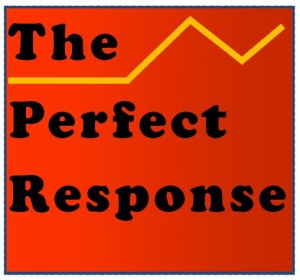[Another national election is taking place. It’s a good time to remember that we will have to get beyond celebrating the unilateralism that has dominated too much American rhetoric. The challenger this time seems more open to seeking common ground with political foes. But the President still seems locked into a binary mindset dominated by the abuse of other Americans as scapegoats. He appears to not have the emotional intelligence to change. And it is our collective problem that this characteristic is one source of his popularity.]
 Lawrence Wright’s book on the intense negotiations that led to the historical Camp David Accords is a good indicator of what is so frequently missing in our politics. Thirteen Days in September (2014) documents the efforts of President Jimmy Carter to find a way out of the chronic Arab/Israeli impasse, working with Israel’s Menachem Begin and Egypt’s Anwar Sadat as his partners. Without doubt the recipient of the Nobel Peace Prize had—and still has—the instincts of a peacemaker. By contrast, prior to the negotiations in 1978, Begin and Sadat had contributed more than their share to the blood-letting that still occurs along borders that surround the Sinai Peninsula. In modern usage, they might have justifiably been labeled terrorists. And yet Carter put his already shaky presidency on the line to cloister these foes in the mountains of western Maryland on the outside chance that they could be induced to produce a lasting peace.
Lawrence Wright’s book on the intense negotiations that led to the historical Camp David Accords is a good indicator of what is so frequently missing in our politics. Thirteen Days in September (2014) documents the efforts of President Jimmy Carter to find a way out of the chronic Arab/Israeli impasse, working with Israel’s Menachem Begin and Egypt’s Anwar Sadat as his partners. Without doubt the recipient of the Nobel Peace Prize had—and still has—the instincts of a peacemaker. By contrast, prior to the negotiations in 1978, Begin and Sadat had contributed more than their share to the blood-letting that still occurs along borders that surround the Sinai Peninsula. In modern usage, they might have justifiably been labeled terrorists. And yet Carter put his already shaky presidency on the line to cloister these foes in the mountains of western Maryland on the outside chance that they could be induced to produce a lasting peace.
It was a risk and an act of political courage, even though new problems developed in the years that followed. Presidents and congressional politicians rarely put themselves on so uncertain a course unless there are guaranteed outcomes. And that’s a problem. A politician who won’t risk failed efforts at conciliation is little more than a poseur: a pretender to the role of a leader.
To be sure, the recent brokered deal between Israel and Bahrain and the United Arab Emirates is a welcome step. And yet the region still festers, with most of the Muslim world hostile to American leadership. And the agreements seem more strategic than something closer to a grand gesture of conciliation that would help resolve the issue of a Palestinian homeland.
![]()
Somehow we are going to have to get beyond celebrating the unilateralism that is now our preferred rhetoric.
The current American challenge of negotiating differences is made worse because of an old national habit of honoring heroes who are supposedly unsullied by the impulse to compromise. We cherish the self-made person, the inner-directed leader, the lone single agent who rejects anything less than what they brought to the bargaining table. This preference plays out in the narrative tropes that show up in our love of John Wayne’s film characters, or James Bond’s free-style execution of his own form of foreign policy. We like our heroes to be dominant, assertive, fearless and ready to bolt at the first suggestion that they might make a concession. And so they continue to come in waves of narratives that celebrate intellectual unilateralism: everyone from cinema superheroes, to larger-than-life thinkers like Apple’s Steve Jobs. Even the small screen occasionally cherishes the mini-rebellions of office workers stuck in the anonymity of drab cubicle farms.
Our preference for the defiant loner has grown so great that words to describe the team player now read like labels of surrender. “Compromise,” “concession,” “conciliation,” and “mediation” all carry the odor of appeasement. And so our interest in performing the rhetoric of defiance is self-defining; its a cheap way to create a persona suggesting “strong values” and ostensibly settled thinking. Even history’s great conciliators—among them: Nelson Mandela, Henry Clay, Abraham Lincoln—seem more distant than the characters we conjure up to illustrate “decisive” and “uncompromising” leadership. One can only guess at what former New York City mayor Rudy Giuliani had in mind when he called Russia’s increasingly dictatorial Vladimir Putin a true “leader.” The statement is a reminder that unearned certainty can be the perfect sign of a fool.
If we are wondering where to begin, I suggest that we reconsider the kinds of people we want to serve in legislative offices. Deliberative bodies require deliberators. And yet our Congress is filled with too many self-styled media stars who show little interest in finding ways to attain mutual consent. They show up for their close-ups in hearings. But they are often absent from caucus rooms where differences must get hammered out.
Somehow we are going to have to get beyond celebrating the unilateralism that is now our preferred rhetoric. It’s a recommendation that especially holds for our chosen leaders, but also for most of us as we weigh the need for ideological purity against the more functional objective of solving problems.
![]()


